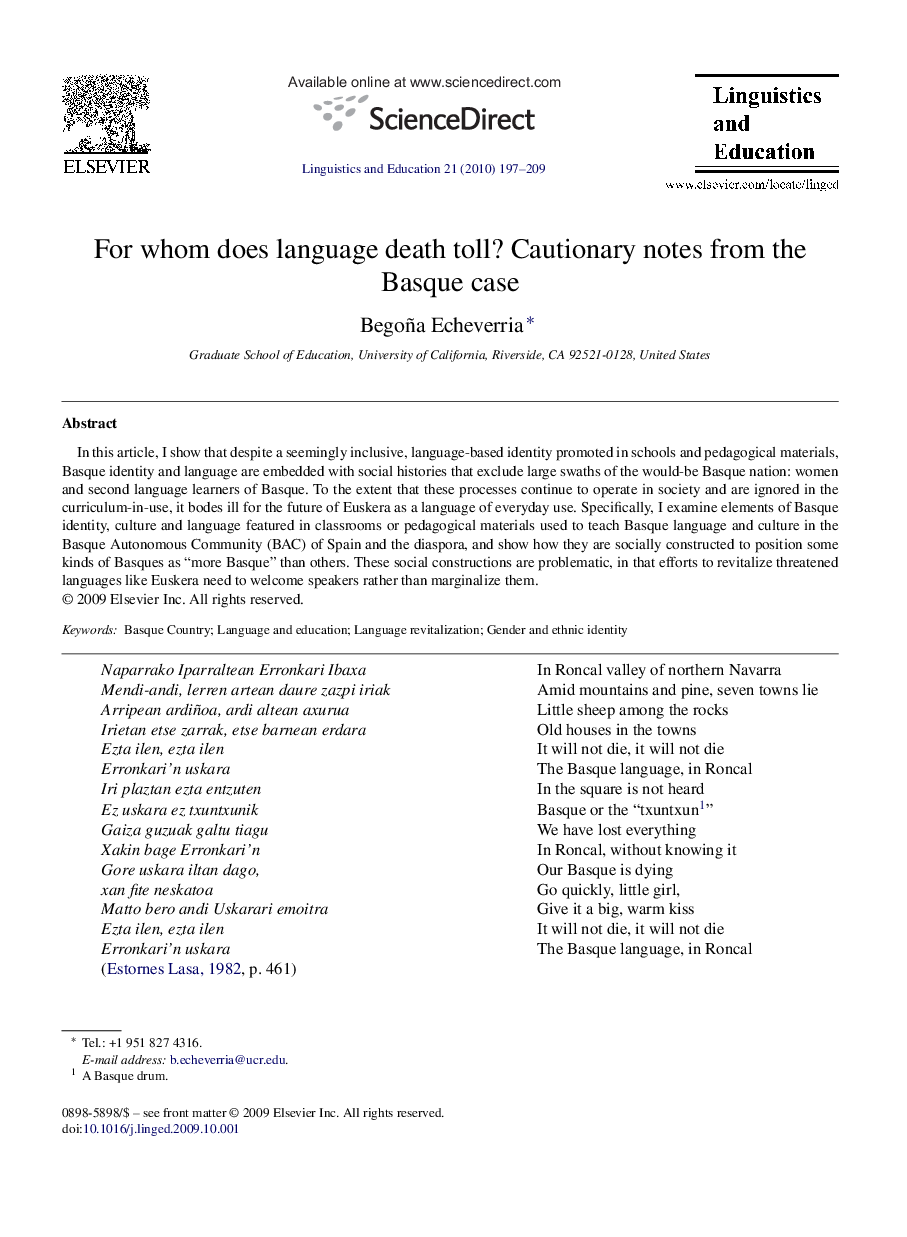| Article ID | Journal | Published Year | Pages | File Type |
|---|---|---|---|---|
| 366467 | Linguistics and Education | 2010 | 13 Pages |
In this article, I show that despite a seemingly inclusive, language-based identity promoted in schools and pedagogical materials, Basque identity and language are embedded with social histories that exclude large swaths of the would-be Basque nation: women and second language learners of Basque. To the extent that these processes continue to operate in society and are ignored in the curriculum-in-use, it bodes ill for the future of Euskera as a language of everyday use. Specifically, I examine elements of Basque identity, culture and language featured in classrooms or pedagogical materials used to teach Basque language and culture in the Basque Autonomous Community (BAC) of Spain and the diaspora, and show how they are socially constructed to position some kinds of Basques as “more Basque” than others. These social constructions are problematic, in that efforts to revitalize threatened languages like Euskera need to welcome speakers rather than marginalize them.
